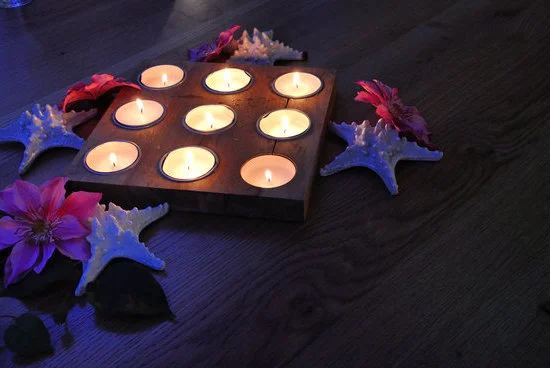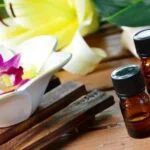Sleep is an essential part of our daily lives, and quality sleep is crucial for overall health and well-being. However, many individuals struggle to achieve restful sleep due to various factors such as stress, anxiety, or insomnia. As a result, there has been a growing interest in alternative sleep aids that can help promote relaxation and improve sleep quality. One such alternative method gaining popularity is aromatherapy.
Aromatherapy, derived from the use of essential oils extracted from plant materials, has been practiced for centuries and is known for its soothing and therapeutic effects. This ancient practice has gained traction in contemporary society as more people seek holistic approaches to self-care. Through the inhalation or topical application of essential oils, aromatherapy aims to harness the power of scent to stimulate certain responses in the brain and body.
In this article, we will explore the potential benefits of aromatherapy for sleep. We will delve into what exactly aromatherapy entails, how it works on a physiological level to induce relaxation and sleep, and which essential oils are most popular for promoting better sleep.
Additionally, we will examine scientific evidence supporting the effectiveness of aromatherapy in improving sleep quality. If you have been searching for a natural solution to enhance your slumber, read on to discover whether aromatherapy could be the answer you’ve been looking for.
What is Aromatherapy
Aromatherapy is a holistic practice that utilizes the use of essential oils to enhance physical, emotional, and mental well-being. Originating from ancient civilizations such as Egypt, China, and India, aromatherapy has been used for centuries for its therapeutic properties. The term “aromatherapy” was coined in the early 20th century by French chemist René-Maurice Gattefossé, who discovered the potential of essential oils after experiencing their healing effects on burns.
Essential oils are highly concentrated plant extracts obtained through methods like steam distillation or cold pressing. These oils contain the natural aromatic compounds found in various parts of plants, such as flowers, leaves, bark, seeds, or roots. Each essential oil has its own unique chemical composition and properties that contribute to its specific therapeutic benefits.
Aromatherapy works by stimulating the olfactory system (sense of smell) and triggering responses in the brain. When inhaled, the aroma molecules travel through the nose and interact with the limbic system – the part of our brain responsible for emotions and memories. This interaction can help induce relaxation, calmness, and ultimately improve sleep quality.
In addition to inhalation, aromatherapy can also be applied topically through massages or baths. The essential oils used in these applications are typically diluted with carrier oils to ensure safe use on the skin. When absorbed into the body through massage or bathwater, essential oils can further promote relaxation and sleep by soothing tense muscles and easing stress-related symptoms.
It’s important to note that while aromatherapy can be a valuable tool for improving sleep quality, it should not replace professional medical advice or treatment if you have a diagnosed sleep disorder or other underlying health conditions. It should also be used with caution during pregnancy or if you have certain allergies or sensitivities to specific scents.
How Aromatherapy Works
Aromatherapy works by utilizing the powerful effects of essential oils on the brain and nervous system to induce relaxation and promote better sleep. When inhaled or applied topically, essential oils can stimulate the olfactory system, which is responsible for our sense of smell. This stimulation sends signals to the limbic system, the part of the brain that controls emotions, memories, and arousal.
One key component of essential oils is their chemical composition, which includes compounds that have been found to have sedative and calming effects on the body. For example, lavender oil contains linalool and linalyl acetate, both of which have been shown to promote relaxation and reduce anxiety.
When these compounds are inhaled or absorbed through the skin, they can trigger physiological responses that help prepare the body for sleep. For instance, studies have shown that inhaling lavender oil can decrease heart rate and blood pressure, signaling a relaxation response in the body.
Additionally, essential oils can also interact directly with neurotransmitters in the brain. Some compounds found in certain essential oils are known to increase serotonin levels in the brain, which can contribute to feelings of well-being and relaxation. On the other hand, other compounds may inhibit certain neurotransmitters associated with wakefulness and arousal.
Overall, the combination of chemical compounds in essential oils along with their ability to activate specific receptors in our olfactory system creates a potent mechanism for inducing relaxation and sleep. However, it’s important to note that each individual response may vary depending on personal preferences and sensitivities to different scents or oils.
| Essential Oil | Main Chemical Compounds | Sleep-Inducing Properties |
|---|---|---|
| Lavender | Linalool, Linalyl acetate | Reduces anxiety, promotes relaxation |
| Chamomile | Bisabolol, Chamazulene | Calming, sedative effects |
| Sandalwood | Santalol, Santalyl acetate | Deeply relaxes the mind and body |
Popular Essential Oils for Sleep
Lavender
One of the most popular essential oils for sleep is lavender. Its soothing and calming properties make it highly effective in promoting relaxation and inducing sleep. Lavender oil contains compounds that interact with the brain’s neurotransmitters, such as serotonin and dopamine, to reduce anxiety and promote feelings of calmness. Research has shown that inhaling lavender oil before bedtime can improve sleep quality by decreasing wakefulness during the night and increasing time spent in deep sleep stages.
Chamomile
Chamomile is another essential oil renowned for its sleep-inducing properties. It contains various bioactive compounds, including apigenin, which acts on the GABA receptors in the brain to induce relaxation and sedation. Chamomile essential oil is often used to alleviate insomnia symptoms and reduce anxiety levels before bedtime. A study published in the Journal of Advanced Nursing found that inhalation of chamomile oil improved both subjective sleep quality and daytime alertness.
Sandalwood
Sandalwood essential oil has a distinct woody aroma that creates a serene atmosphere conducive to sleep. This oil promotes a sense of tranquility and helps calm an overactive mind, making it an excellent choice for those struggling with racing thoughts or stress-induced insomnia. Sandalwood also possesses sedative properties that can help relax muscles and promote a deeper, more restful slumber.
While lavender, chamomile, and sandalwood are three of the most popular essential oils for sleep, there are many other options available, each with their unique benefits. Some individuals may find success with oils like bergamot or ylang-ylang, known for their anxiety-reducing effects, while others may prefer floral scents like rose or jasmine for their relaxing qualities. It’s important to try different oils to find the one that works best for you.
It’s worth noting that essential oils can be used individually or in combination to create a personalized sleep blend. Experimenting with different combinations of oils can provide enhanced benefits and a more tailored experience. However, it’s important to use high-quality, pure essential oils for the best results.
Scientific Evidence
Aromatherapy has gained popularity as a natural sleep aid, but does it actually work? Numerous scientific studies have been conducted to examine the effectiveness of aromatherapy in promoting better sleep. These studies provide valuable evidence suggesting that aromatherapy can indeed be beneficial for improving sleep quality.
One study published in the journal Evidence-Based Complementary and Alternative Medicine found that inhaling the scent of lavender essential oil before bedtime significantly increased sleep quality and duration. Participants reported feeling more refreshed upon waking up and experienced reduced symptoms of insomnia. Another study published in the International Journal of Nursing Practice found that chamomile essential oil used in a foot bath improved sleep quality and reduced feelings of anxiety among cardiac patients.
Research has also shown that sandalwood essential oil can have a positive impact on sleep. A study published in The Journal of Alternative and Complementary Medicine found that participants who used sandalwood oil experienced improved subjective sleep parameters, decreased wakefulness during night time, and increased overall sleep efficiency.
In addition to these specific studies, a systematic review conducted by The Cochrane Library analyzed several randomized controlled trials examining the effects of aromatherapy on sleep quality. The review concluded that aromatherapy had a significant effect on improving both subjective and objective measures of sleep.
Overall, these scientific studies provide compelling evidence supporting the effectiveness of aromatherapy in promoting better sleep. However, it is important to note that individual responses may vary, and further research is still needed to fully understand the mechanisms behind aromatherapy’s effects on sleep.
To reference this section:
Scientific Evidence: Examination of studies and research supporting the effectiveness of aromatherapy in promoting better sleep
- Aromatherapy has gained popularity as a natural sleep aid.
- Several scientific studies support the effectiveness of aromatherapy in promoting better sleep.
- A study found that inhaling lavender essential oil before bedtime increased sleep quality and duration.
- Another study found that chamomile essential oil improved sleep quality and reduced anxiety.
- Sandalwood essential oil has also been shown to improve sleep parameters.
- A systematic review concluded that aromatherapy had a significant effect on improving sleep quality based on multiple studies.
- However, individual responses may vary, and more research is still needed.
Choosing the Right Essential Oil
Consider Your Personal Preferences
When choosing an essential oil for sleep, it’s important to consider your personal preferences. Aromatherapy is all about finding scents that you enjoy and find relaxing, so take some time to explore different options and see what appeals to you.
Some people prefer floral scents like lavender or rose, while others may find citrus scents like bergamot or orange more soothing. It’s also worth noting that certain essential oils have stronger or more distinct smells than others, so keep this in mind when making your selection.
Identify Your Specific Sleep Issues
Another important factor to consider when choosing the right essential oil is identifying your specific sleep issues. Do you have trouble falling asleep? Do you wake up frequently during the night? Are you looking to improve the overall quality of your sleep? Different essential oils can target different sleep concerns, so it’s helpful to identify your specific needs before making a decision.
For example, if you struggle with insomnia or difficulty falling asleep, lavender essential oil is often recommended as it has been shown to promote relaxation and calmness. If you tend to wake up frequently during the night, chamomile essential oil may be beneficial due to its calming properties. Sandalwood essential oil is known for its ability to induce a sense of tranquility, making it a good option for those looking to improve the overall quality of their sleep.
Experiment and Explore
The key to finding the right essential oil for sleep is through experimentation and exploration. What works well for one person may not work as effectively for another, so don’t be discouraged if your first choice doesn’t have the desired effect. Consider starting with one or two essential oils that are commonly recommended for sleep and see how they work for you. Keep track of your experiences and any improvements in your sleep patterns.
It’s also worth mentioning that essential oils can be blended together to create unique combinations that may better suit your preferences. Don’t hesitate to experiment with different blends or even consult with a professional aromatherapist who can provide personalized recommendations based on your individual needs.
By taking into account your personal preferences, identifying your specific sleep issues, and allowing yourself to explore different options, you can select the most suitable essential oil for promoting better sleep and overall relaxation. Remember, the goal is to find an aroma that helps you unwind and achieve a restful night’s sleep.
Methods of Aromatherapy Application
When it comes to incorporating essential oils into a nightly sleep routine, there are several methods of aromatherapy application that can be effective. One popular option is the use of diffusers. Diffusers help disperse the aroma of the essential oil throughout the room, allowing you to inhale it as you sleep. This method is convenient and simple to use since many diffusers have built-in timers or automatic shut-off features.
Another way to enjoy the benefits of aromatherapy for sleep is by using essential oil-infused pillows. These pillows are specially designed with small pockets or inserts where you can place a few drops of your chosen essential oil. The aroma will be released gradually throughout the night, promoting relaxation and better sleep.
For those looking for a more indulgent experience, adding a few drops of essential oil to a warm bath can create a luxurious and calming atmosphere. Simply add the desired amount of essential oil while the bathwater is running and let the soothing scent envelop you as you soak in relaxation.
Lastly, incorporating essential oils into massage oils can provide both physical and mental relaxation benefits. You can mix your preferred essential oil with a carrier oil such as coconut or jojoba oil and gently apply it to your body before bed. Massaging this oil onto your skin not only helps promote better blood circulation but also allows for absorption of the therapeutic properties of the essential oil.
It’s important to note that when using any method of aromatherapy application, it’s crucial to follow proper safety guidelines. Essential oils should never be directly applied to the skin without dilution and should always be kept out of reach from children and pets. Additionally, individuals with respiratory conditions or allergies should exercise caution when using diffusers or other methods that involve inhalation.
Incorporating essential oils into your nightly sleep routine through methods such as diffusers, pillows, baths, and massage oils can create a relaxing and conducive environment for better sleep. Experimenting with different application methods can help you find what works best for you and makes your sleep experience more enjoyable and restful.
Potential Risks and Precautions
While aromatherapy can be a beneficial natural sleep aid, it is important to be aware of potential risks and take necessary precautions when using essential oils. Some individuals may experience allergic reactions or sensitivities to certain oils, which can cause skin irritation or respiratory symptoms. It is also important to note that some essential oils should not be used by pregnant women, children, or individuals with certain medical conditions.
One of the main risks associated with aromatherapy is skin sensitivity and irritation. Essential oils are highly concentrated substances and can sometimes cause adverse reactions when applied directly to the skin without proper dilution. It is recommended to always dilute essential oils with a carrier oil before applying them topically. Conduct a patch test on a small area of skin before using the oil on larger areas to check for any adverse reactions.
Another risk to consider is the possibility of respiratory irritations or allergies, particularly in individuals who have pre-existing respiratory conditions such as asthma. Some essential oils may trigger respiratory symptoms like coughing, wheezing, or difficulty breathing. It is advisable to use essential oils in well-ventilated areas and start with low concentrations or short exposure times if you have any concerns about respiratory issues.
Furthermore, it is crucial to note that essential oils can interact with medications. Certain medications, such as blood thinners or antidiabetic drugs, may have interactions with specific essential oils. It is always best to consult with a healthcare professional before starting aromatherapy if you are taking any medications.
In summary, while aromatherapy can provide numerous sleep benefits, there are potential risks that should not be overlooked. To ensure safe usage of essential oils for sleep purposes, follow these precautions:
- Always dilute essential oils properly before applying topically.
- Conduct a patch test before applying oils to larger areas of skin.
- Use essential oils in well-ventilated areas to prevent respiratory irritations.
- Start with low concentrations or short exposure times if you have respiratory conditions.
- Consult with a healthcare professional if you are taking any medications, to check for any possible interactions.
By taking these precautions and being aware of potential risks, individuals can safely incorporate aromatherapy into their sleep routine for improved sleep quality.
Testimonials and Practical Tips
Many individuals have discovered the benefits of using aromatherapy for improving their sleep quality. Personal testimonials from those who have found success with this alternative sleep aid can provide valuable insights and encouragement for those considering trying it themselves. Here are some real-life experiences and practical tips shared by individuals who have incorporated aromatherapy into their nightly sleep routines.
One individual, Sarah, shared that she struggled with falling asleep and staying asleep due to stress and anxiety. She decided to give lavender essential oil a try after hearing about its calming properties. Sarah said that within just a few nights of using a lavender diffuser in her bedroom, she noticed significant improvements in the quality of her sleep.
She felt more relaxed before bed and was able to fall asleep faster and stay asleep throughout the night. Sarah also recommended trying different methods of application, such as adding a few drops of lavender oil to a warm bath or using it in a massage oil.
Another person, John, had difficulty transitioning between work and sleep due to his busy schedule and racing thoughts. He turned to chamomile essential oil based on its reputation for promoting relaxation.
John found that using chamomile oil in a pillow spray helped create a calming atmosphere in his bedroom, making it easier for him to unwind at night. He also emphasized the importance of consistency, mentioning that incorporating aromatherapy into his nightly routine consistently over time has resulted in better overall sleep quality.
Based on these testimonials and other similar stories, there are several practical tips for maximizing the effectiveness of aromatherapy for sleep:
- Experiment with different essential oils: Everyone’s preferences and needs are unique when it comes to aromatherapy. Some individuals may find success with lavender, while others may respond better to sandalwood or another essential oil. It may be helpful to try out different oils to find the one that works best for you.
- Consistency is key: Aromatherapy is most effective when used consistently over time. Incorporating it into your nightly sleep routine and sticking with it can lead to long-lasting improvements in sleep quality.
- Create a relaxing environment: Enhance the effectiveness of aromatherapy by setting up a calming sleep environment. This can include using dim lighting, playing soothing music, and keeping electronic devices away from the bedroom.
- Practice relaxation techniques: Aromatherapy can complement other relaxation techniques such as deep breathing exercises or meditation. Combining these practices can amplify the overall relaxation experience and promote better sleep.
By learning from others’ experiences and implementing these practical tips, individuals can make the most of aromatherapy as a natural aid for improving their sleep quality. However, it’s important to note that what works for one person may not work for another, so it’s crucial to find what works best for individual needs and preferences.
Conclusion
In conclusion, aromatherapy has shown great potential in promoting better sleep and improving sleep quality. By using essential oils that have sleep-inducing properties, such as lavender, chamomile, and sandalwood, individuals can experience enhanced relaxation and a more restful night’s sleep. Scientific evidence supports the effectiveness of aromatherapy in aiding sleep, and personal testimonials from individuals who have found success with aromatherapy underscore its positive impact.
Choosing the right essential oil for individual preferences and specific sleep issues is crucial in optimizing the benefits of aromatherapy. By considering personal scent preferences and any specific concerns or issues related to sleep, individuals can select the most suitable essential oil for their needs. Experimenting with different oils may be necessary to find the one that works best.
There are various methods of incorporating aromatherapy into a nightly sleep routine. Diffusing essential oils using a diffuser, placing a few drops on a pillow, adding them to bathwater, or using them in massage oils are all effective ways to experience the benefits of sleep-promoting scents.
It is important to keep in mind any potential risks or precautions associated with aromatherapy, such as allergies or sensitivities. It is recommended to start with small amounts and gradually increase use if there are no adverse reactions.
In summary, aromatherapy can be a natural and effective way to improve sleep quality. The potential benefits are supported by scientific evidence and personal testimonials from those who have successfully used it for better sleep.
By exploring different essential oils and finding the right method of application, individuals can create a personalized bedtime routine that promotes relaxation and enhances their overall well-being. If you are struggling with poor quality sleep or insomnia, it may be worth giving aromatherapy a try for improved rest and rejuvenation.
Frequently Asked Questions
Which aromatherapy is recommended for sleep?
Lavender is one of the most commonly recommended aromatherapy scents for sleep. Known for its calming and soothing properties, lavender has been used for centuries to promote relaxation and aid in sleep.
Its gentle floral scent can help to reduce anxiety and stress, allowing the mind and body to unwind and prepare for a restful night’s sleep. Many studies have shown that inhaling lavender oil can promote better sleep quality and duration.
How do you use aromatherapy for sleep?
Aromatherapy can be used for sleep in several ways. One popular method is by using an essential oil diffuser, which releases the aroma into the air so it can be easily inhaled throughout the room. Another option is to apply a few drops of diluted essential oil directly onto your pulse points, such as your wrists or temples, before bedtime.
This allows you to enjoy the calming scent throughout the night. Additionally, you can add a few drops of essential oil to a warm bath or mix it with a carrier oil for use in a relaxing massage before bed.
Why is aromatherapy good for sleep?
Aromatherapy is good for sleep due to its ability to promote relaxation and reduce stress levels. The scents from essential oils are known to have an impact on the brain, affecting mood and emotions. Certain essential oils, such as lavender, have been found to act as natural sedatives by slowing down heart rate and decreasing blood pressure.
Inhaling these soothing aromas can help create a calming environment that signals the body to relax and prepare for sleep. Aromatherapy also provides a sensory experience that can help distract from racing thoughts or worries, further aiding in falling asleep more easily.

Are you looking for a natural way to improve your health and wellbeing?
If so, aromatherapy may be the answer for you.





